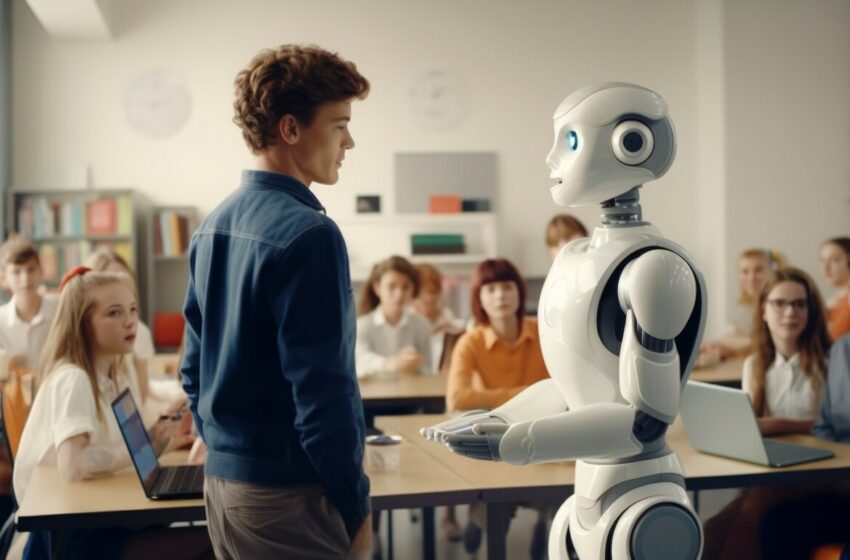The Role of Machine Learning in Personalizing Education

The educational field is undergoing a profound transformation, powered by the advent and integration of machine learning (ML) technologies. This transformation is not just about enhancing the educational tools at our disposal but is fundamentally about tailoring the learning experience to meet the individual needs of each student.
The promise of machine learning in personalizing education is vast, offering the potential to revolutionize how we teach, learn, and assess educational outcomes. In this article, we explore the multifaceted role of machine learning in personalizing education, its current applications, challenges, and the future it envisions for learners around the globe.
Understanding Machine Learning in Education
Machine learning, a subset of artificial intelligence, enables systems to learn from data, identify patterns, and make decisions with minimal human intervention. In the context of education, ML can be harnessed to create adaptive learning systems, predictive models, and personalized learning experiences that cater to the unique needs, preferences, and pace of each student.
The Power of Personalization
Personalization in education refers to the tailoring of pedagogy, curriculum, and learning environments to meet the diverse needs of learners. Here, machine learning acts as the enabler, processing vast amounts of data on individual learners’ interactions, performance, and feedback to customize their learning pathways.
Adaptive Learning Systems
One of the most significant applications of ML in education is the development of adaptive learning systems. These platforms use algorithms to analyze a student’s performance in real-time and adjust the difficulty, type, and pace of content accordingly. This ensures that students are neither bored with too-easy material nor overwhelmed by content that’s too challenging.
Predictive Analytics in Education
Machine learning also plays a crucial role in predictive analytics within education. By analyzing historical data, ML algorithms can predict student outcomes, identify at-risk students, and suggest interventions to improve their chances of success. This capability allows educators and institutions to be proactive rather than reactive, addressing potential issues before they escalate.
Challenges in Implementing Machine Learning for Personalized Education
Data Privacy Concerns
Collecting and analyzing vast amounts of personal data raises significant privacy concerns. Ensuring the security and privacy of students’ information is paramount, requiring robust data protection measures and transparent policies.
Resource Intensive
Developing and implementing Machine Learning-based educational tools and platforms is resource-intensive, necessitating significant investments in technology and training. This can be a barrier for underfunded schools and educational institutions.
Teacher Training and Adoption
The success of Machine Learning-driven personalization also depends on teachers’ willingness and ability to integrate these tools into their teaching. Comprehensive training and support are essential to help educators effectively use Machine Learning technologies.
The Future of Personalized Education with Machine Learning
Looking forward, the integration of machine learning in education holds the promise of a learning environment where each student’s educational journey is as unique as their fingerprint. Future advancements may include more sophisticated adaptive learning platforms, greater personalization, and the use of virtual and augmented reality for immersive learning experiences.
Bridging the Gap with AI Tutors
AI tutors powered by machine learning algorithms could provide students with personalized tutoring sessions. These tutors could adapt to each student’s learning style, pace, and current level of understanding, offering explanations, supplementary content, or practice problems as needed.
The Role of Teachers in a Machine Learning-Enhanced Classroom
It’s important to note that machine learning and AI tools are not replacements for teachers but are instead valuable aids that can enhance teaching effectiveness. Teachers play a crucial role in guiding, mentoring, and providing the emotional and social support that machines cannot offer. The future of personalized education will likely see a collaborative partnership between human educators and AI technologies, maximizing the strengths of both.
Summary
The role of machine learning in personalizing education is both transformative and expansive. By leveraging the power of ML, educational experiences can be customized to fit the unique needs of every learner, enhancing engagement, improving outcomes, and making education more accessible.
However, the journey towards fully personalized education requires careful navigation of the challenges and ethical considerations associated with these technologies. With a balanced approach, the future of education can be one where every student has the opportunity to reach their full potential, supported by the intelligent, adaptive, and personalized learning environments that machine learning can create.(Nominate Now: Join us to spotlight your achievements! Be part of the elite in the business and finance community. Exciting opportunities await!)






